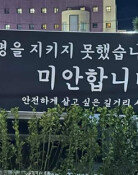Cut in yearly working hours
While many European politicians cater to labor demands, a leftist French politician has attracted attention by opposing welfare populism. Manuel Valls, a member of the French Socialist Party, is urging the scrapping of the 35-hour workweek, claiming it weakens Frances national competitiveness. He had been involved in the introduction of the 35-hour rule in the 1990s and joined labor in 2005 in protesting the extension of working hours.
Michael J. Sandel, the author of Justice: What`s The Right Thing To Do?, said in his latest book Why Morality? that from the viewpoints of hardworking people who abide by the rule of law, giving compensation to free riders feels like a mockery of the sweat they shed. While such anger cannot lay the basis for opposing social welfare, working hard to earn a livelihood can serve as the yardstick for fairness and the obligation and qualification required of a citizen.
In July, Korea will introduce the 40-hour workweek to companies employing five to 19 people. The rule, which began with workplaces with more than 1,000 staff in 2004 under the Roh Moo-hyun administration, will be expanded to some 300,000 offices and 2 million workers. This is expected to reduce the annual average working hours in Korea, which at 2,256 is the highest among member economies of the Organization for Economic Cooperation and Development. Without enhanced productivity, shorter working hours will reduce GDP over the mid to long term. Fewer working hours could temporarily stimulate domestic consumption, but higher wages and export prices will affect export competitiveness and stifle job creation.
Hajime Kitano, a senior economist at JPMorgan Securities, recently warned that Korea could enter its own lost decade based on Seouls plan to reduce annual working hours to an average of 1,800. In Japan, annual working hours have fallen from more than 2,000 to 1,800. If Korea is to avoid a lost economic decade like Japan, it must raise productivity to sufficiently offset the drop in working hours.
With working hours reduced, welfare populism of election-minded politicians will grow more rampant as election season comes closer. The main opposition Democratic Party has adopted free medical services as its official line, following its previous pledge of free lunch for elementary school students. In addition, the party is likely to promise childcare and halving university tuition. A country eventually fails if it raises taxes to dole out excessive welfare benefits, causing its people to grow more dependent on welfare and makes them less eager to work.







